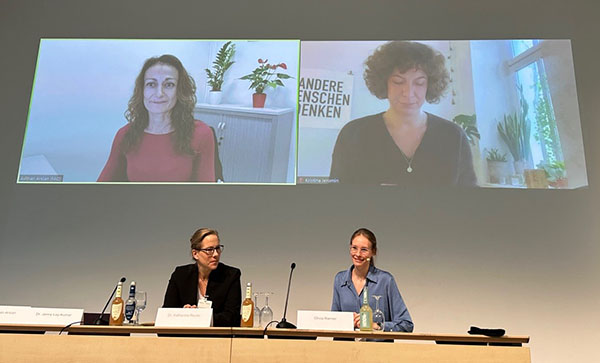By Marlene Ohlau and Olivia Riemer, TMG – Think Tank for Sustainability
The hidden costs of the global agrifood system have recently come to light, revealing startling figures that underscore the profound impact of current food production and consumption on the environment, human health, and society at large. According to new analysis from the Food and Agriculture Organization of the UN (FAO), the hidden costs associated with these impacts amount to a staggering USD 12.7 trillion – USD 5 per person, or 10% of global gross domestic product (GDP). This revelation stems from the latest State of Food and Agriculture (SOFA) Report, published in November 2023.
Of all the hidden costs identified by the FAO, a significant portion – 73% – can be attributed to health-related issues stemming from diets that contribute to obesity or non-communicable diseases (NCDs) such as diabetes and heart disease. Following this, environmental impacts account for more than 22% of the quantified hidden costs, while 4% are due to social costs related to issues of poverty and malnutrition.
True Cost Accounting (TCA) emerges as a pivotal methodology in this quest, offering a framework to analyze and quantify the impact along the agrifood supply chain on the environment, economy, society, and individuals – commonly referred to as natural, produced, social, and human capital. By making the hidden (or indirect) costs and benefits of products or services visible, TCA provides a foundational tool for informed decision making. Sounds groundbreaking, so where does TCA stand today in policy, business, and finance?
This question was further explored at the recent Biofach trade fair in Nuremberg, Germany, where leading experts convened in a congress session to discuss the implementation of TCA in sustainability policy and financing. The event, organized and led by Olivia Riemer and Marlene Ohlau, from TMG – Think Tank for Sustainability, provided a platform to gain insight into the steps needed to make TCA a widespread practice in the agrifood industry.
Aslihan Arslan (FAO), Kristina Jeromin (Green and Sustainable Finance Cluster Germany), Jenny Lay-Kumar (Regionalwert Research gGmbH), and Katharina Reuter (Bundesverband Nachhaltige Wirtschaft e.V.) were among the speakers who shared their perspectives on this critical topic.

Speakers at the panel discussion in hybrid format at the Biofach trade fair in Nuremberg, Germany. Top L-R: Aslihan Arslan, FAO, and Kristina Jeromin, Green and Sustainable Finance Cluster Germany. Bottom L-R: Katharina Reuter, Bundesverband Nachhaltige Wirtschaft e.V., and Olivia Riemer, TMG – Think Tank for Sustainability. Photo credit: TMG – Think Tank for Sustainability
The panel discussion underscored the growing urgency of integrated reporting in today’s economic landscape. The panelists emphasized that a reform of corporate accounting and reporting represents a crucial lever to transition towards a more environmentally sustainable and socially responsible approach to business. They highlighted that currently, companies, investors, and tax authorities primarily focus on assets and liabilities associated with produced capital (e.g., goods and services, property, and machinery) when evaluating corporate performance. The costs and benefits of the environmental and social impacts of their activities, such as human and planetary health or fair working conditions, often remain unaccounted for.
By neglecting the true costs in accounting, the livelihoods of current and future generations can be jeopardized or even irretrievably destroyed in the long term, as it incentivizes exploitive behavior. Moreover, neglecting hidden impacts increases sustainability risks for businesses, which are directly linked to financial risks, as Jeromin pointed out. Ultimately, she argued, financial performance cannot be adequately assessed without considering the financial risks and costs associated with unsustainable business behavior. In the future, sustainability information and financial data must be integrated into reporting in order to minimize sustainability risks.
TCA serves as the gateway in this regard, monetizing sustainability information and facilitating its integration into financial reporting. TCA, sometimes referred to as Sustainable Performance Accounting (SPA), could support this development, as underlined by Lay-Kumar. SPA is an innovative method that enables both positive and negative sustainability aspects to be included in corporate balance sheets, thus allowing for a precise representation of true costs and benefits at the company level. According to Lay-Kumar, research and application possibilities are already well developed in this regard but political and regulatory recognition and distribution are lacking.
The awareness and willingness of the private sector to establish comprehensive transparency has grown because some companies perceive transparency of their sustainability performance as a strategic momentum in their corporate management and a relevant factor in their future competitiveness. However, such business practices are still pioneering work. It is essential to ensure uniform sustainability standards for all companies. This, in turn, calls for political support, the creation of standardized and progressive rules, and a forward-looking policy that offers businesses economic prospects and planning security, as Reuter highlighted.
The panel discussion touched upon two examples of political commitment to piloting TCA. Reuter outlined the potential of the German coalition agreement, noting its efforts to integrate environmental and possibly social values into established accounting standards and to promote fair pricing. However, she expressed concern about the progress in implementation. On the other hand, Arslan pointed to the widespread recognition of the positive reception of the SOFA 2023 report among UN Member States, with Switzerland actively planning concrete steps to implement the TCA approach. Specifically, the Swiss Federal Department of Agriculture aims to integrate TCA principles into its national vision for 2050.
It remains to be seen whether other countries will also take decisive action in this regard. In the view of the panelists, there is a clear need for political action to expand the current accounting systems to adequately account for the financial costs of non-sustainable economic activities (“damages”) as well as the financial values of sustainable economic activities (“benefits”). Arslan pointed out that further insights on the application and use of TCA are expected with the SOFA 2024 report, which will discuss using TCA within a systemic framework to identify suitable policy levers. Through numerous case studies from around the world, it will provide further insights into policy recommendations and actions to integrate TCA.